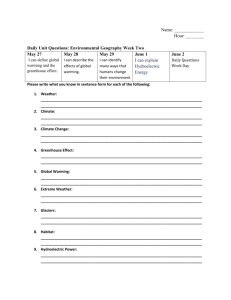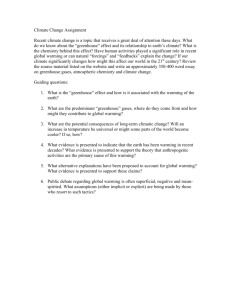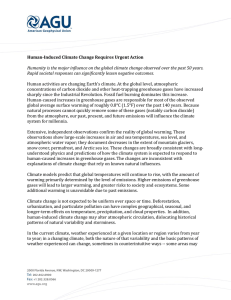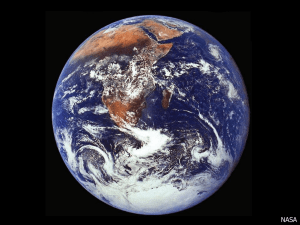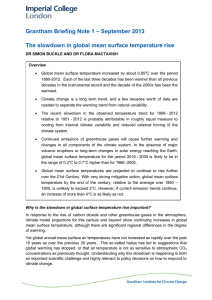What is Climate Change?
advertisement
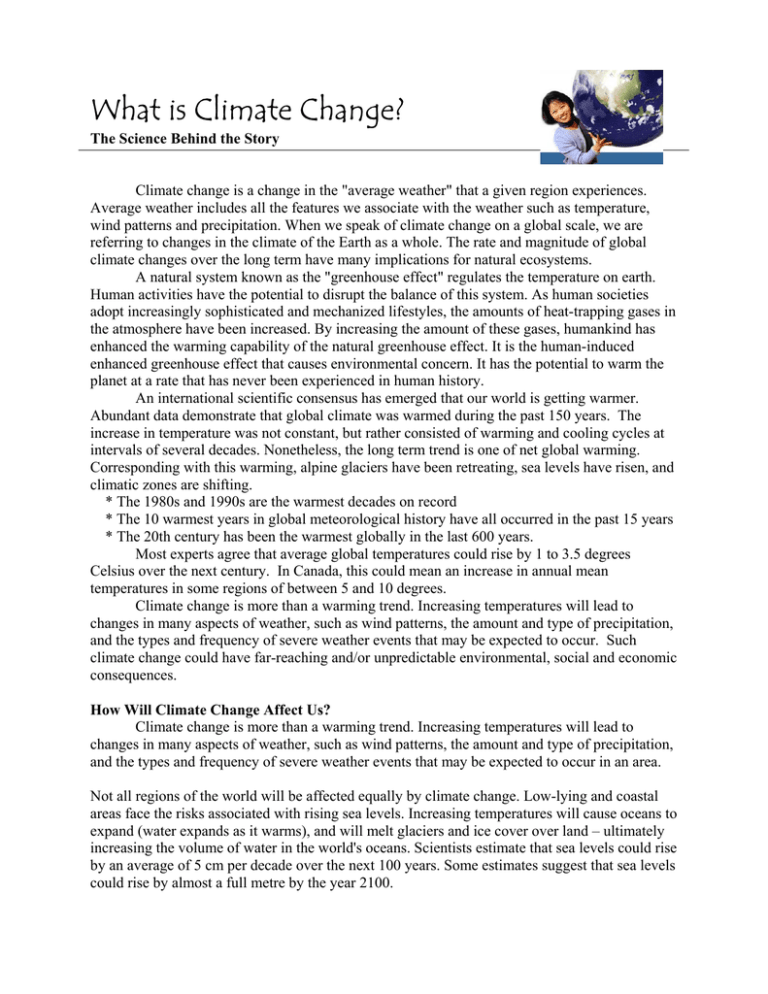
What is Climate Change? The Science Behind the Story Climate change is a change in the "average weather" that a given region experiences. Average weather includes all the features we associate with the weather such as temperature, wind patterns and precipitation. When we speak of climate change on a global scale, we are referring to changes in the climate of the Earth as a whole. The rate and magnitude of global climate changes over the long term have many implications for natural ecosystems. A natural system known as the "greenhouse effect" regulates the temperature on earth. Human activities have the potential to disrupt the balance of this system. As human societies adopt increasingly sophisticated and mechanized lifestyles, the amounts of heat-trapping gases in the atmosphere have been increased. By increasing the amount of these gases, humankind has enhanced the warming capability of the natural greenhouse effect. It is the human-induced enhanced greenhouse effect that causes environmental concern. It has the potential to warm the planet at a rate that has never been experienced in human history. An international scientific consensus has emerged that our world is getting warmer. Abundant data demonstrate that global climate was warmed during the past 150 years. The increase in temperature was not constant, but rather consisted of warming and cooling cycles at intervals of several decades. Nonetheless, the long term trend is one of net global warming. Corresponding with this warming, alpine glaciers have been retreating, sea levels have risen, and climatic zones are shifting. * The 1980s and 1990s are the warmest decades on record * The 10 warmest years in global meteorological history have all occurred in the past 15 years * The 20th century has been the warmest globally in the last 600 years. Most experts agree that average global temperatures could rise by 1 to 3.5 degrees Celsius over the next century. In Canada, this could mean an increase in annual mean temperatures in some regions of between 5 and 10 degrees. Climate change is more than a warming trend. Increasing temperatures will lead to changes in many aspects of weather, such as wind patterns, the amount and type of precipitation, and the types and frequency of severe weather events that may be expected to occur. Such climate change could have far-reaching and/or unpredictable environmental, social and economic consequences. How Will Climate Change Affect Us? Climate change is more than a warming trend. Increasing temperatures will lead to changes in many aspects of weather, such as wind patterns, the amount and type of precipitation, and the types and frequency of severe weather events that may be expected to occur in an area. Not all regions of the world will be affected equally by climate change. Low-lying and coastal areas face the risks associated with rising sea levels. Increasing temperatures will cause oceans to expand (water expands as it warms), and will melt glaciers and ice cover over land – ultimately increasing the volume of water in the world's oceans. Scientists estimate that sea levels could rise by an average of 5 cm per decade over the next 100 years. Some estimates suggest that sea levels could rise by almost a full metre by the year 2100. Scientists have also determined that warming will be greater in polar regions than nearer to the equator, and that continental interiors will experience greater warming than coastal areas. This has serious implications for sensitive polar ecosystems, their wild species and the human inhabitants. Interior regions may face more frequent and intense heat waves. What Can You Do To Combat Climate Change? The answer is – lots! All Canadians produce greenhouse gas emissions, and reducing these emissions is a big part of the solution to the problem of climate change. The energy-using habits of individual Canadians account for about 28% of Canada's total greenhouse gas emissions – almost 5 tonnes per person every year. Canada and the world will continue to warm, but there are many variables that can affect the speed and magnitude of the changes. Staying informed about climate change, and supporting efforts to slow its progress are things all Canadians can do. Taking action on climate change can also make our economy more internationally competitive by creating growth and jobs while producing less waste, pollution and greenhouse gases. All of these actions can take place at home, at work, in transport, and even at school!


